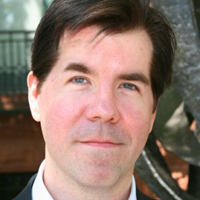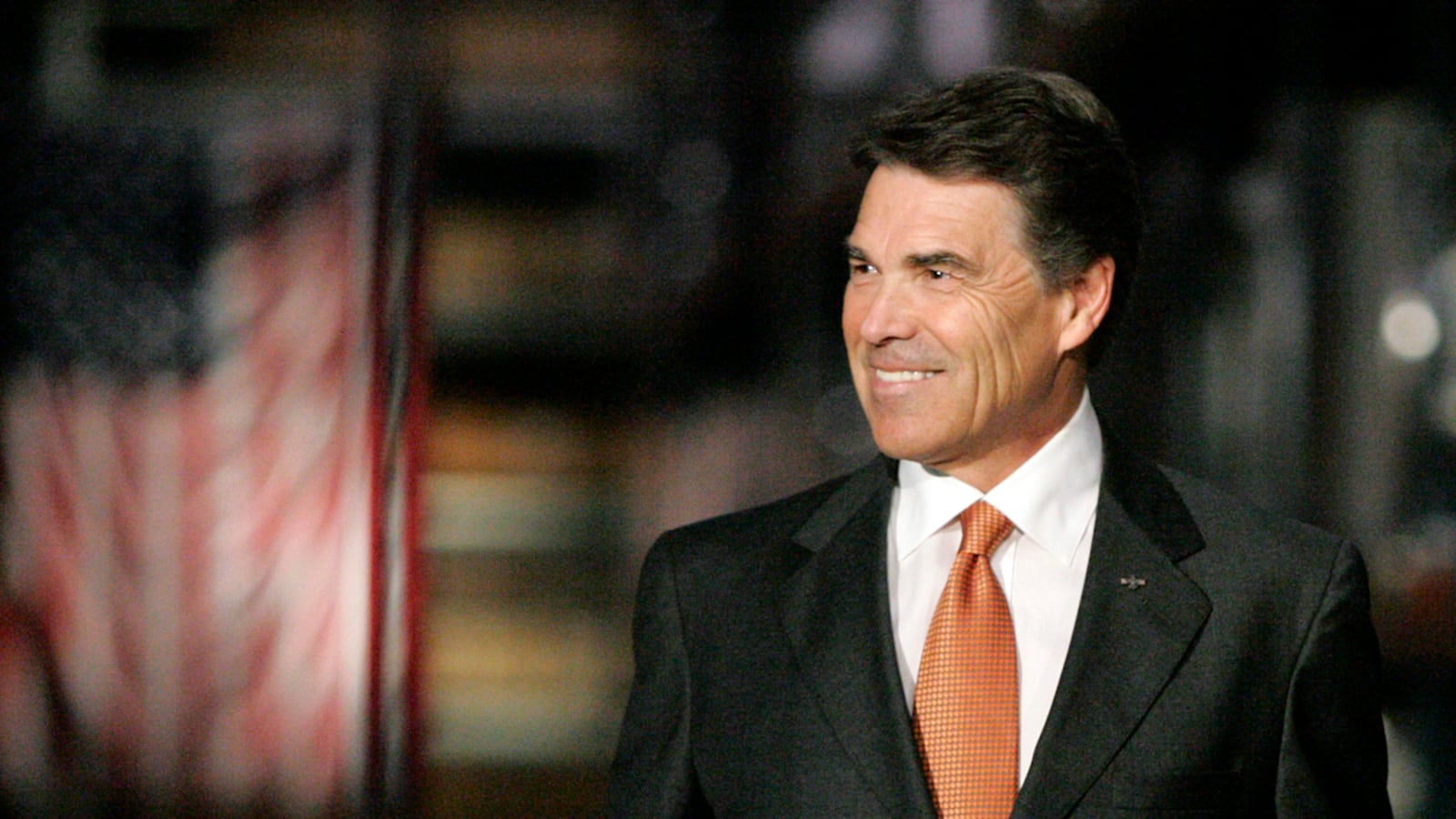Rick Perry has decided to run for president as himself. Truly his campaign must be desperate.
Just the other day, the candidate kicked up a Texas-size dust storm by floating the idea that he might opt out of some of the upcoming GOP debates scheduled across the country, all but conceding that he isn’t good at them. This, of course, was an immediate crisis for political reporters, who risked losing frequent-flier miles (and airtime) if other candidates followed suit.
In case there was any doubt, Perry also let folks know he isn’t particularly eloquent. “If you're looking for a slick politician or a guy with great teleprompter skills, we already have that,” he says in his latest frills-free campaign ad, “and he's destroying our economy.” He has shown a bizarre reluctance to walk back any of his positions. Though he has softened his rhetoric, he never has repudiated, for example, calling Social Security a “Ponzi scheme.”
In New Hampshire last weekend, the candidate appeared to be, as they say, “feeling no pain.” He was giddy and strange and funny: “This is such a cool state” ... “We’re into those slogans, man” ... “I’m sorry, dude” ... “That right-to-work thing” ... “big neon signs” ... “I love Herman. Is he the best?” Oddly, no one on the Perry campaign seems the slightest bit fazed by any of this, though surely its seasoned hands must know that this is not how it’s done.
The 2012 election cycle, in fact, has been precisely the opposite: a dreary parade of candidates determined to be someone other than who they actually are. Even Mr. Magoo could point us to Exhibit A, the man whom the influential conservative columnist George Will recently dubbed “a recidivist reviser of his principles.” I might feel some sympathy for former Massachusetts governor Mitt Romney, the archconservative/pragmatist/establishment candidate/non–career politician/pro-choice/pro-life/anti-Reagan/pro-Reagan/man of Utah/Michigan/Massachusetts, if only I knew who he was. Then there was Tim Pawlenty, pretending to be a charismatic mountain man; Rick Santorum, pretending to be the politico who knows how to win in blue states (uh, except when he lost in one of the biggest); and Ron Paul, pretending to be a legitimate, rational Republican frontrunner. The only candidate with any traction this year has been the one who seemed to be the least like that bunch: Herman Cain, the unpolished businessman. That is, until the phrase “hands-on executive” took on an entirely different meaning.

Could Perry’s let-it-all-hang-out strategy work? That, of course, depends on the mood of GOP voters. But they seem to be attracted this year to imperfect figures who promise to tell it like it is, from Cain to Donald Trump to Chris Christie. And the Perry strategy has worked before.
More than two decades ago, Vice President George Herbert Walker Bush was lampooned as an awkward, wishy-washy guy whose sentences began and ended in entirely different places. Cunningly, Bush’s strategists decided to turn that damaging weakness into a sign of his strength. In his acceptance speech at the 1988 Republican National Convention, Bush embraced his malapropisms. “I know I sometimes can be a little awkward,” he acknowledged, “but there is nothing self-conscious in my love of country.” He was a “quiet man,” he said, who heard the quiet people others don’t: those who raise families and meet their mortgages. Bush was unslick, unpolished, imperfect—and proud of it. Entering the convention, the vice president was trailing his opponent by double digits. After that speech, he took the lead and never looked back.
It is possible that Perry’s gambit will have the same result. If it does, it won’t be long until the engineers of the Rombot campaign take note. I can almost see the former governor looking across his long conference-room table to his dozens of hired strategists and consultants, whose advice he solicits and considers and then reconsiders and then thinks about some more. Rejecting yet another PowerPoint presentation that outlines his latest positions, he looks up in frustration. “Authenticity?” Romney asks. “Why didn’t you geniuses think of that?”





